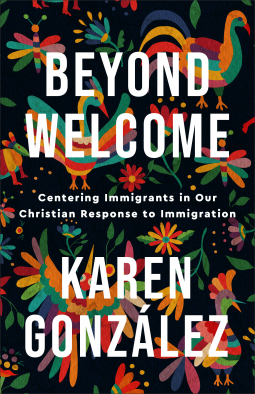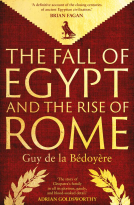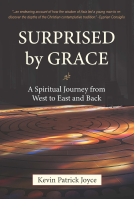
Beyond Welcome
Centering Immigrants in Our Christian Response to Immigration
by Karen González
This title was previously available on NetGalley and is now archived.
Send NetGalley books directly to your Kindle or Kindle app
1
To read on a Kindle or Kindle app, please add kindle@netgalley.com as an approved email address to receive files in your Amazon account. Click here for step-by-step instructions.
2
Also find your Kindle email address within your Amazon account, and enter it here.
Pub Date Oct 18 2022 | Archive Date Dec 23 2022
Baker Academic & Brazos Press | Brazos Press
Talking about this book? Use #BeyondWelcome #NetGalley. More hashtag tips!
Description
"A top-notch Christian look at immigration, humane and full of heart."--Publishers Weekly
Many American Christians have good intentions, working hard to welcome immigrants with hospitality and solidarity. But how can we do that in a way that empowers our immigrant neighbors rather than pushing them to the fringes of white-dominant culture and keeping them as outsiders? That's exactly the question Karen González explores in Beyond Welcome.
A Guatemalan immigrant, González draws from the Bible and her own experiences to examine why the traditional approach to immigration ministries and activism is at best incomplete and at worst harmful. By advocating for putting immigrants in the center of the conversation, González helps readers grow in discipleship and recognize themselves in their immigrant neighbors.
Accessible to any Christian who is called to serve immigrants, this book equips readers to take action to dismantle white supremacy and xenophobia in the church. They will emerge with new insight into our shared humanity and need for belonging and liberation.
Advance Praise
“González’s weaving together of biblical stories, immigrant realities, and her own experiences in community brings clarity to how white supremacy and American exceptionalism play a role in our desire to be heroes of good immigrants. This book needs to be in the hands not only of those who are seeking to love immigrants but also of immigrant advocates.”—Sandra Maria Van Opstal, pastor, author, activist
“In Beyond Welcome, Karen González masterfully weaves together biblical scholarship and life experiences to articulate a powerful and compassionate theology of belonging that recognizes all people—regardless of national origin, language, immigration status—as image bearers of God and part of God’s ‘kin-dom.’ It’s an important and compelling work that I strongly recommend; it provides a road map to help all of us fully live out what it means to love our neighbors as ourselves.”—Rev. Adam Taylor, president of Sojourners; author of A More Perfect Union: A New Vision for Building the Beloved Community
“Beyond Welcome is a beautiful and compelling invitation to experience the depths of human belonging. With a powerful exploration of Scripture and her own story, Karen González boldly calls us to center our immigrant neighbors in our theologies and daily lives. ‘Words, it is very clear, have power and can open doors,’ writes González. This is exactly what we experience in this work: an open door leading toward our shared humanity and collective liberation. This book is a sacred and necessary gift to the church.”—Kat Armas, host of The Protagonistas podcast; author of Abuelita Faith
“Rooted in Scripture and in her personal experiences both as an immigrant and as an advocate for immigrants, Karen González’s Beyond Welcome asks weighty questions about how Christians respond to issues of immigration. Whether you agree with her conclusions or not—I usually did, occasionally did not, and in a few cases am still wrestling with what I think, long after reading this poignant book—you will find Beyond Welcome to be challenging, constructive, and helpful in drawing Christians toward an immigrant-centered, Christ-honoring response to a complex issue.”—Matthew Soerens, US director of church mobilization and advocacy, World Relief; coauthor of Welcoming the Stranger: Justice, Compassion, and Truth in the Immigration Debate
“Karen González is wonderfully brave. She tells hard and often hidden truths about immigration, about the church, and about parts of the Bible we often ignore. She does it all in the light of Christ, through his words and action as revealed in Scripture. We all need to take the challenges in Beyond Welcome seriously, particularly those of us who care about Christian engagement in immigrant ministry.”—Rev. Alexia Salvatierra, academic dean, Centro Latino, Fuller Theological Seminary
“Beyond Welcome is an invitation to re-read Scripture through the eyes of the people at the center of the story—immigrants who find their identity in God’s family. Karen González has offered us the opportunity to unlearn the habits of colonized hospitality and to know the beloved community God makes possible in the fellowship of those who know this world’s systems are not their home. It’s an invitation for all of us to find our true home by reimagining the spaces we inhabit.”—Jonathan Wilson-Hartgrove, author of Revolution of Values
“With powerful and evocative stories about her life as an immigrant to the United States, Karen González opens our eyes to new perspectives on ancient stories. Her book presses into the complex hope and resilience of people who leave home only to face threats of assimilation and racialized myths. In Beyond Welcome, González pushes us past sentimentality and into the fleshy good news of God’s border-crossing, transgressive love.”—Melissa Florer-Bixler, author of How to Have an Enemy
“This book presents many challenging and helpful questions about how we think about and relate to immigrants and immigration. Written from her own perspective as an immigrant, González explores a broader, constructive framework to engage in a way that recognizes the often unjust and unequal power dynamics inherent in an immigration system and country that has often treated immigrants as ‘less than.’ González’s unique and compelling perspective is much needed as we think about what it means to move beyond welcome to learn from and become like family with our neighbors. I hope this book will challenge you as much as it challenged me!”—Jenny Yang, vice president for advocacy and policy, World Relief; coauthor of Welcoming the Stranger
Available Editions
| EDITION | Other Format |
| ISBN | 9781587435607 |
| PRICE | $18.99 (USD) |
| PAGES | 176 |
Featured Reviews
Thank you to Baker Academic & Brazos Press and NetGalley for an ARC of this in exchange for an honest review!
As an open-minded, open-hearted Christian, I find it so disheartening when those who claim to know the love of God weaponize that love against anyone that they don't understand. This book does such a good job of pulling on scripture to show us that our land is not our land - it's the land of the Creator, and we are its tenants. I highly encourage anyone who is curious to pick this book up and learn the ways in which we can all, regardless of our differing religious beliefs, be better and do better when it comes to the treatment of immigrants as a whole.
I give this book 3 stars as it did seem to get repetitive with information and points made at about the 60% mark. I would also encourage readers to be relatively familiar with scripture or have a Bible/google handy as the author does use a lot of very specific Biblical references! Overall, I do think I got a lot from this book and liked the way the author took ownership of her own mistakes in the past in the way she presents immigration.
Also, this book is a good reminder that Jesus was FOR THE PEOPLE AND THE JUST THE COOLEST.
 Charlotte J, Educator
Charlotte J, Educator
I finished this book in an afternoon and immediately pre-ordered a hard copy for my office bookshelf. In Beyond Welcome, author Karen Gonzalez does faithful theology from the ground up, putting her story in conversation with scripture, with the stories of BIPOC and LGBTQIA+ immigrants, and with North American social history and policy. She disrupts white middle class Christianity's illusions of "good" immigrants, the "worthy" poor, and a hospitality that doesn't make us uncomfortable.
I cannot wait to use this book in a book discussion group. No doubt, Gonzalez's readings of familiar biblical stories will make their way into my preaching and teaching, as well.
Many thanks to NetGalley and Brazos Press for a free e-copy in exchange for a review.
 Pete F, Media/Journalist
Pete F, Media/Journalist
Really appreciated this book from Karen González. Her writing style, mixing stories and personal commentary with large-scale ideas and numbers, fit this theme. As the subtitle suggests, she calls us to center those who are so often "othered."
 Conrade Y, Reviewer
Conrade Y, Reviewer
With globalization, immigration and relocations are fast becoming a norm. Many immigrants uproot themselves because of commercial opportunities, jobs, family links, or simply a desire to start life afresh in a new land. Others flee for refuge because of wars and various forms of persecution. Emigrating from their original home countries is just the first part of the story. Immigrating to their new countries of choice is the second. How do they adjust to the new cultural climate? What are the expectations of them from people in their host country? Is adaptation by immigrants and acceptance by native citizens enough for cultural amalgamation? This book takes a critical look at our existing structures of welcoming new immigrants, probing the cultural challenges as well as the role of the Church. Author and professor Karen González deals with the issue of moving beyond superficial acts of welcome that often appears more as lip service. She offers a three-part approach to discuss this issue. Part One looks at "Words and Myths" that many people use, oblivious to any underlying sneaky or subconscious forms of micro-aggression. She asks questions that most people might not even think of. Are assimilation strategies just and fair? Is it right to tell immigrants to forsake their cultural background just for the sake of assimilation? How can words alone become a barrier to true welcome? What about the myth of the "good immigrant?" This book essentially challenges this deeply-held belief. In a passionate pushback against many such "norms," author Karen Gonzalez says that welcoming foreign immigrants needs to go beyond expectations of cultural conformance as well as the myths of the "good immigrant." She makes us ponder on biblical relevance, especially on the distinction between "good" and "bad" immigrants. We cannot depend only on immigrants to change. Hosts and natives need to learn the cross-cultural differences too! One of the key instruments is language. As the saying goes: "It takes two to tango," society will be a lot closer and friendlier if everyone can do their part to build bridges. Gonzalez gives a powerful example of how she connected with Russian speakers by trying to speak using her limited Russian knowledge. Words carry significant meaning, and the author shows us that words can heal as well as hurt.
Part Two gives us a biblical perspective of welcoming the stranger. She reminds us that our backgrounds often inform our biblical interpretation. Like the parable of the prodigal son. While most people focus on the unconditional love demonstrated by the father, those who had experienced actual famine see it differently. This also prompts a re-examination of how we interpret the way we see immigrants. Are we trying to kill off another culture in the name of cultural assimilation? She points to a white superiority culture that is often the problem behind true immigrant acceptance. True welcoming is linked to biblical hospitality. We learn how the hospitality shown by Jesus can be a model for us to learn from. Ultimately, it is all about belonging and feeling belonged.
Part Three offers a look at the history of immigration. It is also a desire to search for a home where one can belong. From the early beginnings of how Adam and Eve were cast out of the Garden of Eden, people have been searching for a place that they can call home. Using her wide exposure to different countries and people groups, González senses the common desire to belong and to move to a place where one can live. Ireland for example has a history of emigration and immigration. One of the biggest emigrations from Ireland happens during the great potato famine in the 18th century. Many white people in the West have Irish roots. She was trying to tell us that all cultural groups have experienced people moving from one country to another. If that is so, it is a powerful reminder that many of us are directly or indirectly impacted by immigration movements in the past.
My Thoughts
==============
While this book looks at the way we should welcome immigrants entering our respective countries, author Karen González makes it clear that we all need to re-examine our preconceived notions of immigration, immigrants, and our sense of identity. I like the way she challenges us to forsake any old misconceptions and to put on new ways to see immigration matters. I like the way González debunks the myths surrounding the common perceptions of immigration. The first two chapters are powerful and ought to be must-reads. There are some words that I find the author's clarifications very helpful. For instance, a migrant (within one country) from an immigrant (moving across different countries); "refugee" (status applied for outside the country), and "asylee" (status applied for when inside the country). For the latter, it seems like a combination of the words "asylum: and "refugee."
Some of the popularly held beliefs can be a bit difficult to eliminate. For instance, there is a popular saying that when one is in Rome, one is expected to do what the Romans do. It is a way to tell people to get on board with the culture, customs, and curriculum of the new country. Language is a key instrument in bridging cultural differences. González challenges immigrants to learn the language of the land as much as possible. At the same time, she urges hosts to refrain from telling immigrants to go back to their own countries. By reminding us that nearly every family has an immigrant link in the past, we should all be mindful to reject all forms of discrimination. We all need to be ready to extend our hands of welcome beyond handshakes, hugs, and humble words. Our actions need to support our words of welcome. Christians need to go back to the Bible to learn from the way Jesus welcomed people from all walks of life into his fellowship. After all, he died for the world right?
Finally, I have always believed that our humanness should be the lowest common denominator in the acceptance of relationships. This humanness transcends citizenship status, our levels of prosperity, or any ethnic distinctions that we have. It is dangerous to think of any one ethnic group being superior to others. This causes problems like what happened to Hitler's claim of Aryans being the superior race. Whether it is anti-semitism or racial discrimination. the moment we forget that we are all human, we easily belittle others. That is why it is important to ask: "What does it mean to be human?" Let the Bible inform us that we are all sinners in need of grace. In that light, let us approach all people with kindness and grace because we have all been given kindness and grace in Christ. We all need a home. Being human is about helping one another find that home as an act of human solidarity. Biblically, that means loving our neighbours. That implies accepting them no matter where they come from, and if they happen to move in next door, go beyond welcome to offer hospitality and goodwill.
How do we make immigrants feel welcome in our countries? If in doubt, pick up and learn from this excellent book.
Karen González is a writer, speaker, and immigrant advocate who emigrated from Guatemala as a child. She attended Fuller Theological Seminary, where she studied theology and missiology, and she has worked in the nonprofit sector for thirteen years. In addition to her first book, The God Who Sees: Immigrants, The Bible, and the Journey to Belong, she has written for Christianity Today, Christian Century, Sojourners, and the Baltimore Sun. She lives in Baltimore, Maryland.
Rating: 5 stars of 5.
conrade
This book has been provided courtesy of Brazos Press and NetGalley without requiring a positive review. All opinions offered above are mine unless otherwise stated or implied.
 Katarina C, Librarian
Katarina C, Librarian
Karen Gonzalez tackles a topic that is difficult for many Christians in American today today - race and immigration - and shares her experience and expertise with compassion and understanding. She challenges our idea of what church should be, and how to truly welcome believer of all backgrounds, especially those different than us. Well worth the read!
An exploration of how Christians can better embody Jesus for the immigrant among them.
The author, herself an immigrant to America from Guatemala, often speaks of her experiences in her life in America, as a teacher, as an advocate for immigrants, and in mission work in Kazakhstan.
She addressed the expectations of Americans regarding assimilation and what has often been lost in that process, let alone how many groups are not quite allowed to assimilate because they are considered the other. She discusses the idea of the "good immigrant" and the standards to which immigrants are unfairly held. She speaks of the power of language for connection and sharing. She considers how the Bible is read and interpreted differently in different cultures and what happens when one group decides their reading is more normative. She spoke of Jesus' hospitality and the kind of hospitality which we often find threatening yet necessary for truly sharing in life. She spoke of the need to belong, the struggle of belonging in a foreign land, and how God's people should be a place of belonging. She then considers how plenty of people move even within America yet are not considered immigrants and how frequently people have been on the move throughout time. She warns us about using other people's stories without their permission and/or making them the object of our purposes rather than the subject of their own experiences. She concludes by envisioning a community of God's people as a "kin-dom," where all find belonging as brothers and sisters in Christ before God the Father.
Her perspective is very helpful and her exhortations are worth considering, uncomfortable as they may prove for many in the dominant culture.


















